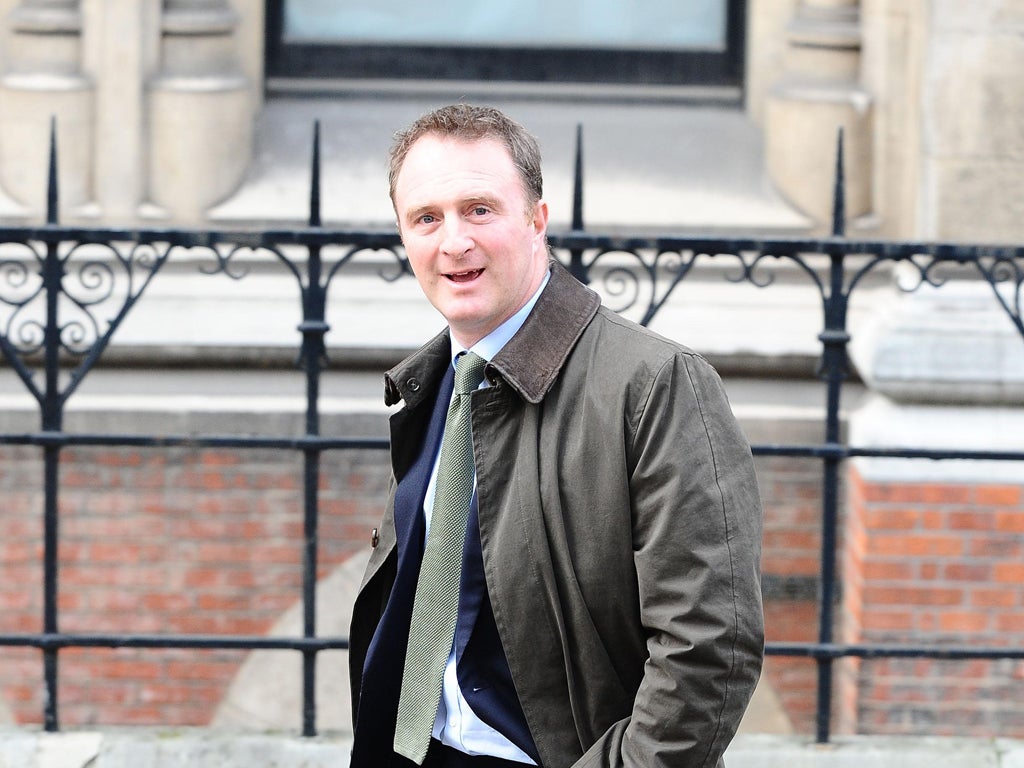Recall 'The Times' editor to Leveson, says MP
Fresh revelations over computer hacking contrast with the evidence given in a key court case. James Hanning reports

Your support helps us to tell the story
From reproductive rights to climate change to Big Tech, The Independent is on the ground when the story is developing. Whether it's investigating the financials of Elon Musk's pro-Trump PAC or producing our latest documentary, 'The A Word', which shines a light on the American women fighting for reproductive rights, we know how important it is to parse out the facts from the messaging.
At such a critical moment in US history, we need reporters on the ground. Your donation allows us to keep sending journalists to speak to both sides of the story.
The Independent is trusted by Americans across the entire political spectrum. And unlike many other quality news outlets, we choose not to lock Americans out of our reporting and analysis with paywalls. We believe quality journalism should be available to everyone, paid for by those who can afford it.
Your support makes all the difference.The Leveson inquiry into press standards is to be asked to recall the editor of The Times to demand how the Murdoch-owned newspaper has given potentially conflicting evidence about how one of its reporters "outed" an anonymous internet blogger.
It was revealed last week that a Times reporter hacked the emails of "Nightjack", a popular police blogger who remained anonymous to protect his career. The police officer was later disciplined after being exposed.
The newspaper later told a High Court judge that it had uncovered the police officer's true identity through clues in his blog. It claimed it revealed the identity in the "public interest" and made no mention of hacking.
However, in evidence submitted to the Leveson inquiry, The Times disclosed a reporter, who has since left the newspaper, had carried out an "unauthorised" hack of a blogger's email in 2009 and had been disciplined for professional misconduct.
It did not reveal this had taken place in connection with the Nightjack revelations, which emerged subsequently following independent inquiries. It also later emerged the reporter had revealed to executives at The Times the information had been obtained through computer hacking before the story was published. The Times has acknowledged that "the incident raised issues about the approval process for newsgathering at the newspaper".
Last night Labour MP Tom Watson said James Harding, editor of The Times, needed to clarify the situation. "James Harding has questions to answer. Who at the company was aware the High Court and the blogger's lawyers were not told about this."
His call for an inquiry was echoed yesterday by David Allen Green, a barrister and leading legal blogger who has taken interest in the Nightjack case. "There are serious questions that need to be answered as to why the High Court was not told. If The Times did throw its financial and legal might behind a story which they knew to be based on computer hacking and did not inform the court – or found out later, and still told no one about it – then that, in my view, would be a scandal perhaps comparable to the tabloids' abuse of phone hacking."
Tom Watson said the latest revelations also contrasted starkly with James Murdoch's evidence to the Parliamentary Culture Media and Sport Committee last year. Asked by Mr Watson whether he was aware computer hacking had taken place at News International, Mr Murdoch said he was unaware of any computer hacking.
"James Harding needs to explain when did he tell James Murdoch that email hacking had taken place at The Times," Mr Watson said. "If he says he didn't tell James Murdoch, why didn't he, given the current level of public scrutiny on News International? As with phone hacking, I believe computer hacking was undertaken by more than one single rogue reporter at NI. I find it incredible James Murdoch had no knowledge of this when he gave evidence to Parliament. Some weeks earlier Mr Murdoch's own chief executive told the Leveson inquiry that computer hacking had occurred at The Times. He had a massive team of people to brief him, yet still we are asked to believe that nobody told him about wrongdoing on his newspapers."
News International declined to comment last night.
What happens next: Attention will turn to computer hacking
As Lord Leveson's inquiry switches focus this week with senior television executives giving evidence, the focus of the phone-hacking saga moves to 13 February when a series of test civil cases involving hacking is set to be heard. News International wants to settle the cases before that and there are rumours that offers have been made to do so.
These offers, called "Part 36" offers, are designed to encourage litigants to settle rather than press for unreasonably high awards in court. Yet some of the 23 remaining victims, who include Charlotte Church, Simon Hughes MP, Kieren Fallon and Steve Coogan, have intimated they will not be satisfied with non-specific apologies and are thought to want their cases to go to court to establish who was responsible for their phones being hacked. So it's a matter of who blinks first.
News International is keener than ever to settle the cases. The impetus – on all sides – to do so will be that much greater after Friday's settlements, and there is an assumption at NI that there will be a substantial second tranche of payouts before mid-February.
But while the legal cases relating to phone hacking seem to be coming to a climax, the issue of computer hacking is likely to move to centre stage.
Join our commenting forum
Join thought-provoking conversations, follow other Independent readers and see their replies
Comments